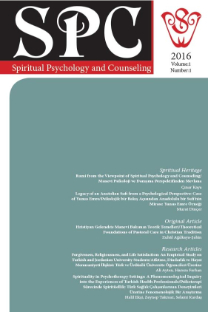Bridging Psychologies: Islam and Secular Psychotherapy
Due to the lack of mental health services available to the Muslim community that are culturally and spiritually informed by the Islamic tradition, there has been signi cant stigma and misunderstanding about participating in therapy. This is in large part because modern Western psychology is commonly understood to be antithetical to Islam or any other religion or spiritual tradition for that matter. Although this has to some degree shifted in recent years with the increased awareness about the need for cultural and spiritual competencies within the eld of mental health, it is still a problem.
What is not widely recognized by mental health professionals and the Muslim community is that there is a traditional “science of the soul” (‘ilm al-nafs) known as Islamic psychology. Islamic psychology is not about introducing religious terms or ideas into the preexisting structure of modern Western psychology, but rather a turn within the depths of the Islamic tradition itself, applying its own ontological and epistemic principles in understanding the human being and its relationship to the sacred and utilizing its own treatment modalities.
- ISSN: 2458-9675
- Yayın Aralığı: Yılda 3 Sayı
- Başlangıç: 2016
- Yayıncı: Halil Ekşi
Sayıdaki Diğer Makaleler
İşyeri Ruhsallığında Bir Fenomen Olarak Dini Anlayabilmek: Durkheimcı Yaklaşım
Thomas M. KELLEY, Brooke Wheeldon REECE, Bric G. LAMBERT
Thomas M. KELLEY, William F. PETTİT JR., Judith SEDGEMAN, Jack PRANSKY
Thomas M. KELLEY, William F. Pettit JR, Judith SEDGEMAN, Jack PRANSKY
Kur’an Işığında Carl Gustav Jung’a Yanıtlar: Bireyleşme Süreci
Türkiye Kültürü Bağlamında Evlilikte Empati Ölçeğinin Geliştirilmesi ve Geçerliliği
